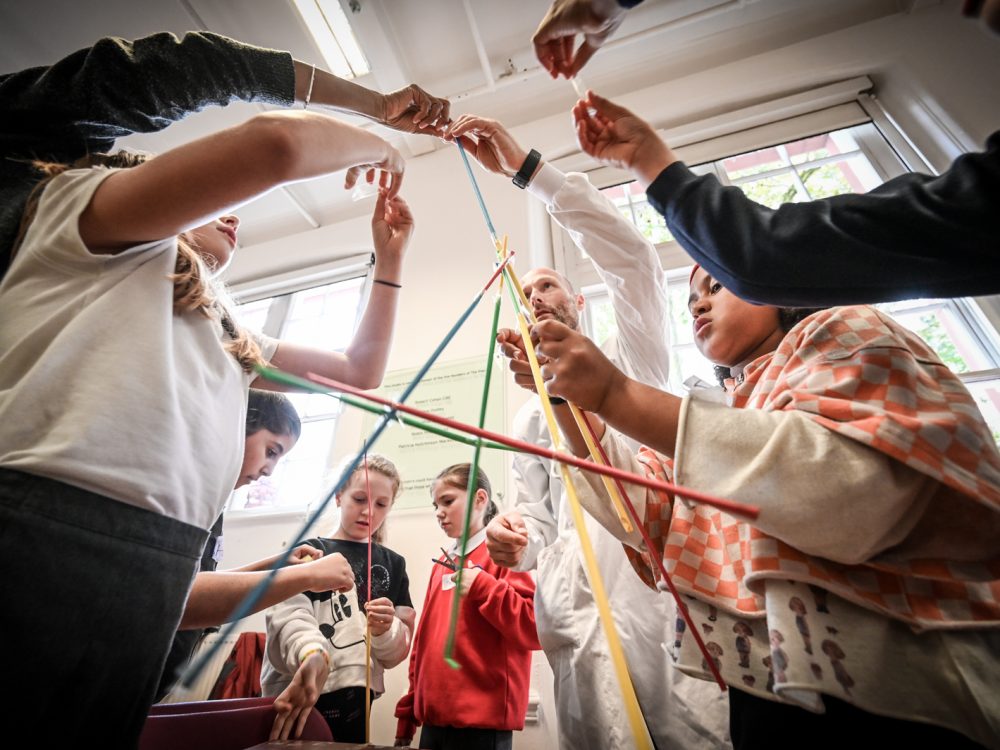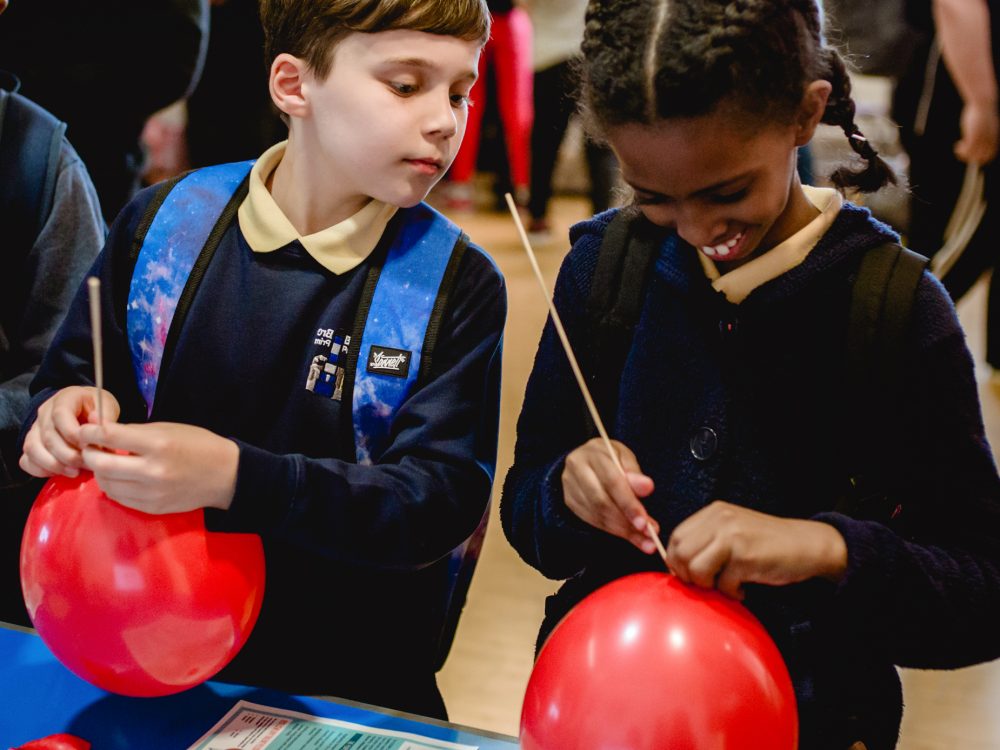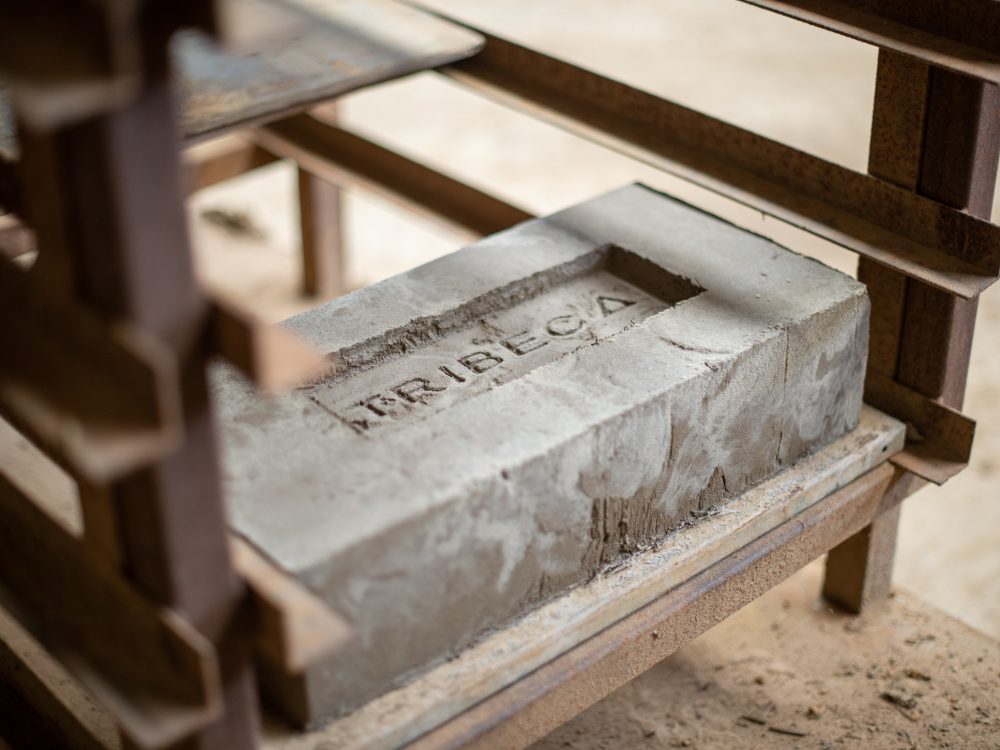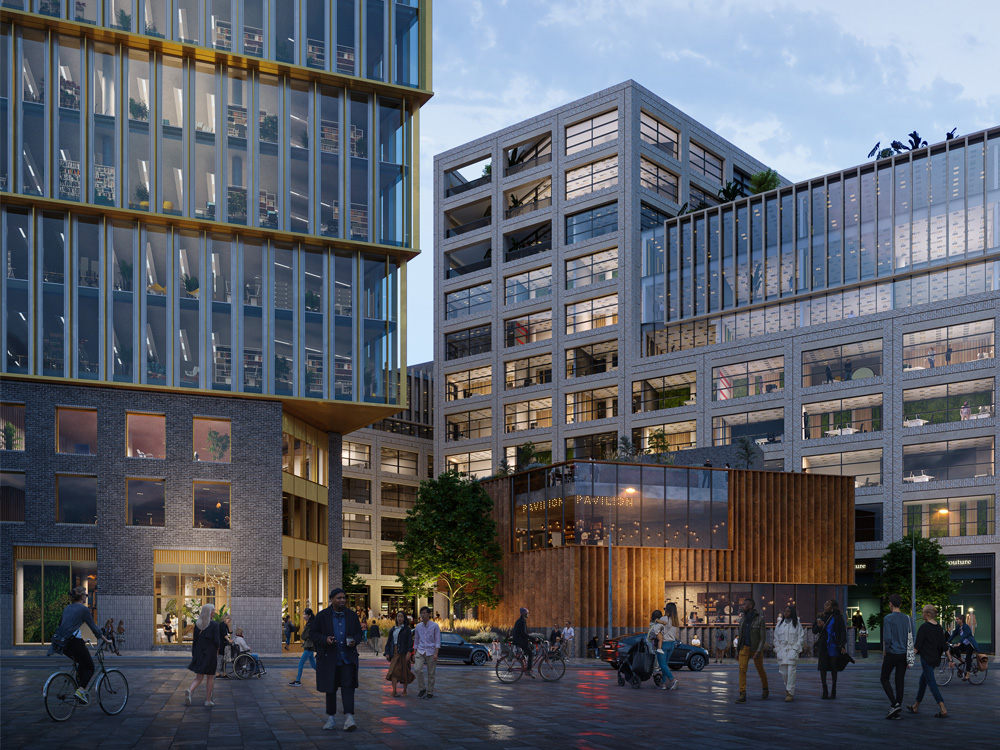Camden the home of STEAM
Walk through the streets of Camden and you will find yourself among globally recognised institutions. From the British Library and the Francis Crick Institute to tech giants like Facebook and Google, these places have amassed a knowledge hub with a truly international reputation for excellence.
But impressive as they are, Camden wants to ensure that these institutions are part of its social fabric, that they aren’t just enclaves of talent, disconnected from the rest of the borough. Instead, they should play a real, positive role in people’s lives. Camden Learning, a partnership between the borough’s state schools and Camden Council, is one organisation making that connection happen for young people in the community.

Camden Learning’s STEAM (Science, Technology, Engineering, Arts and Maths) programme has worked for three years to connect employers with the next generation of local talent. The goal is to give kids “a sense that job opportunities exist, but also that sense that they belong there,” says Danielle Tobin, Director of STEAM and Partnerships.
The programme, which works with young people and schools across the borough with a particular focus on those from disadvantaged and underrepresented backgrounds, is “that lynchpin in the middle” between schools and companies, Tobin says. Employers can sign up to the STEAM Pledge, committing to activities that can benefit kids’ prospects later in life.
Why STEAM?
STEAM brings together a traditional STEM background and injects it with creativity. “What we’ve found over the last few years is that creativity also encapsulates communication and collaboration, and those skills are going to be really crucial for future jobs,” Tobin says.
The relevance is obvious in Camden: science, technology and creative collaboration are the foundation of its institutions, and their importance is going nowhere.
One way Camden Learning advocates for this multi-disciplinary approach is through its STEAM Hub. Bringing together leaders from local schools that have pioneered STEAM-focused learning – such as the Torriano School – and local businesses, the Hub has developed STEAM curriculum approaches that it shares with other primary and secondary schools.
A team of teachers, employers and students from Central Saint Martins art school have put together five curriculum projects, each focused on a challenge in the local area. One of these sees early primary school students working with architecture firm Bennetts Associates (who are also working on the Tribeca project) to design the eco city of the future.
Tobin says: “This is obviously rooted in high quality curriculum design and what kids need to be learning anyway, but what we’re able to add is that young people are focusing on how to be changemakers in their local area.”
Another benefit is that these projects take a multi-disciplinary approach, which, Tobin argues, can be “quite hard” to embed in a curriculum otherwise – especially in secondary school. Projects that combine scientific and creative skills emulate how architects and engineers, for example, might design a new development in the real world.

The value of meaningful work experience
Beyond being exposed to a wide range of subject knowledge, students that take part in these projects learn about careers they can aspire to. They will learn what an architect, or an engineer, or a programmer does and that these are genuine options for them later in life.
The problem students face is that while activities like work experience and apprenticeships – meaningful encounters with employers – have a tangible impact on young people’s prospects, they are still often dependent on connections, which means the most disadvantaged lose out on the benefits.
Camden Learning is working hard to change this. During the pandemic, Google developed a work experience programme for Camden students, prioritising those from a disadvantaged backgrounds. The result is that 120 students a year will have Google on their CV. Programmes like that, Tobin says, “will make a really substantial difference.”
As Camden STEAM’s programme enters its next phase of expansion, it gives the borough’s world-class institutions the chance to be more than just beacons of knowledge for the world. They can be beacons of hope and opportunity for those who walk past them every day.
“We know that by the age of seven, evidence shows that young people’s career ambitions are pretty much set, and it’s quite rooted in their gender, ethnicity and socio-economic background – and the stereotypes around careers. We’re not saying that kids need to be choosing their careers, but they need to be exposed to the whole range of different roles that exist in the world.”


